Justice
Quebec’s highest court upholds law banning public servants from wearing religious symbols
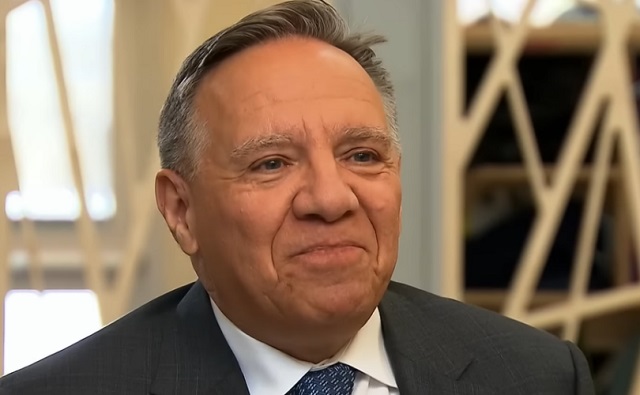
Quebec Premier François Legault
From LifeSiteNews
The new ruling overrides the Quebec Superior Court’s 2021 ruling which exempted the Montreal English school board from the province’s secularism law which prohibits public servants from wearing cross or other religious symbols.
Quebec’s highest court has upheld the province’s secularism law which bans civil servants from wearing religious symbols while at work.
On February 29, the Quebec Court of Appeals ruled that that the province’s secularism law, Bill 21, is constitutional and overturned a previous decision which exempted English schools from the law.
“The Act does not offend the unwritten principles or the architecture of the Canadian Constitution, nor does it offend any pre-Confederation statute or principle having constitutional status,” Appeal Court justices, Manon Savard, Yves-Marie Morrissette et Marie-France Bich wrote in their decision.
Bill 21, passed in 2019, bans all public servants, including public school teachers, police officers, government lawyers, and wildlife officials, from wearing any religious symbols while at work.
However, citing its commitment to “diversity, acceptance, tolerance and respect for individual rights and religious freedoms,” the Montreal English School Board indicated that it would not comply with the new law.
While the Quebec Superior Court exempted English schools from the secularism law in April 2021, the new 290-page ruling overrides the lower court’s decision.
The Superior Court decision was challenged in November 2022 by various civil liberties groups in addition to the Quebec government, which argued it created an unfair distinction between English and French schools.
The new decision relies on the province’s use of the notwithstanding clause, which allows the province to override most challenges to the legislation.
The notwithstanding clause, embedded in section 33 of the Canadian Charter of Rights and Freedoms, allows provinces to temporarily override sections of the Charter of Rights and Freedoms to protect new laws from being scrapped by the courts.
“The court has confirmed Quebec’s right to make its own decisions,” Premier François Legault told reporters in Montreal Thursday. “Secularism is a collective choice that is part of our history, in continuity with the Quiet Revolution. Secularism is a principle that unites us as a nation in Quebec.”
Legault confirmed that the province will continue using notwithstanding clause for “as long as it is necessary for Canada to recognize the societal choice of the Quebec nation.”
He added that the law is “non-negotiable” as the province recently tabled legislation to renew the application of the clause to Bill 21 for another five years.
While the decision was celebrated by the Quebec premier, the Canadian Civil Liberties Association (CCLA) called the ruling a “painful setback.”
“This is a heart-wrenching day and highlights the urgent need for people across Quebec who have stood up for the values of equality, justice and freedom to continue to raise their voices,” CCLA Executive Director and General Counsel Noa Mendelsohn Aviv said in a press release.
“These values are the ones that fuel our legal challenge and that lie at the heart of our collective struggle against Bill 21,” Aviv declared.
Similarly, Quebec Life Coalition President Georges Buscemi told LifeSiteNews, “This decision is completely consistent with the recent historical trend in Quebec, which is one of rejecting its Catholic heritage in favor of a liberal ‘enlightened’ worldview, which considers religion to be a purely private matter.”
“This decision confirms the ‘legality’ of Quebec’s secularism law, which purports to make the state ‘neutral’ with respect to religions,” he continued. “Whatever the intentions of this law, its effect is to extirpate all signs of religion from the public square, from Knights of Columbus meetings in community centers to prayer in daycares. So called state-neutrality is quickly becoming state atheism in practice.”
COVID-19
Trudeau government only sought legal advice after Emergencies Act was invoked, records indicate
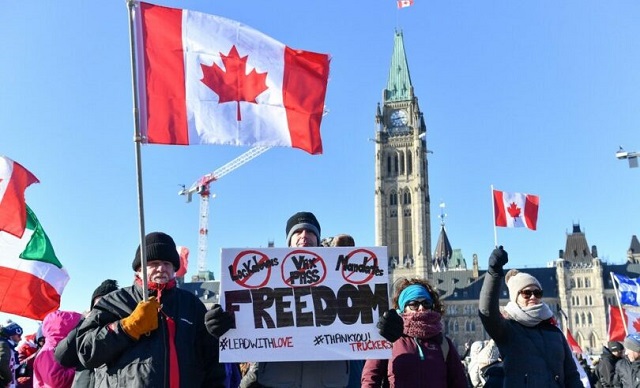
Canada’s Freedom Convoy in Ottawa Minas Panagiotakis/Getty Images
From LifeSiteNews
The two-page Memorandum For The Attorney General was dated February 15, 2022, and was written by the deputy director of prosecutions. The date of the memorandum is significant, as it comes after Trudeau had invoked the EA on February 14.
A Conservative MP’s request for information has revealed that the cabinet of Prime Minister Justin Trudeau waited until after it had invoked the Emergencies Act (EA), which was done to take down the peaceful Freedom Convoy, to get legal advice from Canada’s Attorney General on whether its use was lawful.
As noted in a recent Blacklocks’s Reporter article, Access To Information records obtained by Conservative MP Arnold Viersen from the office of the Attorney General confirm what many MPs have been suspicious of for years, that Trudeau’s use of the EA was not really warranted.
“I filed an Access To Information request for the memorandum on the Emergencies Act sent to the Attorney General from the Public Prosecution Service,” MP Viersen said in a statement to the media.
“What did they advise the Attorney General? We will never know because Justin Trudeau censored it.”
The documents, despite being censored, do reveal that the two-page Memorandum For The Attorney General was dated February 15, 2022, and was written by the deputy director of prosecutions. The date of the memorandum is significant, as it comes after Trudeau had invoked the EA on February 14.
Trudeau’s Attorney General Arif Virani, during testimony on February 28, said that there was a legal opinion offered regarding whether the use of the EA would be justified, but that its contents had to remain confidential.
This claim of secret legal advice has never been substantiated.
In early 2022, the Freedom Convoy saw thousands of Canadians from coast to coast come to Ottawa to demand an end to COVID mandates in all forms. Despite the peaceful nature of the protest, Trudeau’s government enacted the EA on February 14, 2022. Trudeau revoked the EA on February 23.
Earlier this year, Canada’s Federal Court announced that the use of the EA by the Trudeau government was a direct violation of the nation’s Charter of Rights and Freedoms, and thus was “not justified.”
Of note is that the judge who ruled Trudeau’s government’s use of the EA was “not justified” was Federal Court Justice Richard Mosley, a Liberal-appointed and well-respected judge with decades of experience.
The Trudeau government has since appealed the court’s decision.
I do not ‘believe for a second’ the ‘threshold’ was met to invoke EA
Conservative MP Glen Motz told a February 28 hearing of the Special Joint Committee on the Declaration of Emergency that he did not believe for a “second” that the “broader interpretation even existed,” in terms of the legality of the EA’s use.
“I still believe more strongly today than I did in 2022 that the circumstances to invoke the Emergencies Act were not met,” he said, noting that “The threshold was not met.”
“I agree with Justice Mosley in his decision that it was in fact illegal and unconstitutional,” he said.
The EA controversially allowed the government to freeze the bank accounts of protesters, conscript tow truck drivers, and arrest people for participating in assemblies the government deemed illegal.
Before Mosley’s ruling, an investigation into the use of the EA, as per Canadian law, was launched by Trudeau. The investigation, titled the Public Order Emergency Commission, was headed by Liberal-leaning Judge Paul Rouleau. Unsurprisingly, the commission exonerated Trudeau’s use of the EA.
During the clear-out of protesters after the EA was put in place, one protester, an elderly lady, was trampled by a police horse, and one conservative female reporter was beaten by police and shot with a tear gas canister.
Last month, LifeSiteNews reported that Conservative MP Marilyn Gladu uncovered that the federal government of Trudeau spent $2.2 million in taxpayer money in a failed attempt to try and stop court challenges filed against it for enacting the EA to stop the peaceful Freedom Convoy.
Freedom Convoy leaders Tamara Lich and Chris Barber have been in a ongoing legal battle with federal officials.
COVID-19
More victories for freedom as ArriveCAN charges dropped and fines reduced

Gheorghe and Carmen Neferu
News release from The Justice Centre for Constitutional Freedoms
The Justice Centre for Constitutional Freedoms is pleased to announce that it continues to see dropped charges and significantly reduced fines for Canadians who allegedly violated the Quarantine Act or who chose not to use the ArriveCAN app at Canadian borders.
The Justice Centre has provided defence counsel to eight Canadians who chose not to comply with a mandatory ArriveCAN.
Added together, these eight Canadians received a total of 13 tickets, with combined fine amounts totalling $54,815. Defence counsel provided by the Justice Centre negotiated with the Crown to secure admissions that amounted to fines totalling $1,216, not $54,815. All hearings for these cases were scheduled to take place in April at the Ontario Court of Justice in Mississauga, Ontario.
Here are their stories.
Cory Thorn, along with his wife, Guiseppina Lamacchia, their two small children and Guiseppina’s mother Carmela Lamacchia, were returning from a trip to Italy on September 8, 2022, when they were stopped at the Canadian border. They had not downloaded the ArriveCAN app because they did not feel comfortable with the app. They asked if they could submit the required information on paper but were told they could either use the app or face fines. The three adults were given two tickets each, one for $955 and another for $6,255. Together, the family faced a total of $21,630 in fines for violating two sections of the Quarantine Act: section 58, failing to comply with an order prohibiting or subjecting to any condition the entry into Canada and section 15(1), failing to answer a relevant question asked by a screening officer or to provide the officer with any required information or record. Their trials were scheduled for April 15, 2024. Five of the six tickets were dismissed. Carmela pled guilty to one charge and received a reduced fine of $615.
On September 22, 2022, a mother and her adult daughter, who have requested anonymity, were returning from a trip to Italy when they were each fined $6,255 for failing to use the ArriveCAN app. The women felt uneasy providing private health information through the ArriveCAN app. They offered to provide the information orally to border officials. Their offer was refused. Each had trial dates set for April 23, 2024. The daughter’s charge was withdrawn by the Crown, while her mother pled guilty and paid a significantly reduced fine of $300.
Daniel Sauro and his partner, Gina Campoli, traveling with their one-year-old daughter, returned from a family vacation on September 24, 2022, when each adult was issued a ticket for $6,255 under section 58 of the Quarantine Act for not using the ArriveCAN app. They were uneasy about disclosing private medical information and were concerned about the app’s security. Their trial was scheduled for April 18, 2024 -nineteen months after the tickets were issued. The public health officer did not appear at trial, and so the prosecutor was forced to withdraw all charges.
Gheorghe and Carmen Neferu traveled back to Canada from abroad on August 3, 2022, when they were each given two tickets with fines for failing to use the ArriveCAN app, totaling $14,420 They did not want to answer invasive questions regarding their medical status. Their trials were scheduled for April 8, 2024. The charges against Carmen were withdrawn, while Gheorghe had one charge withdrawn. He pled guilty to the other, paying a reduced fine of $300.
A constitutional challenge to the ArriveCAN app requirement continues to proceed in the Ontario Court of Justice.
Chris Fleury, lead counsel on the Charter challenge to the ArriveCan app requirement, says, “Each and every Canadian who refused to provide their vaccination status via ArriveCAN was also subject to a mandatory 14-day quarantine in addition to their ticket. The quarantine had no scientific or public health basis and was a breach of Canadian’s Charter right not to be arbitrarily detained. While we would have preferred that no one was charged in the first place, we are pleased to see the prosecution taking a more reasonable approach to these cases.”
-

 City of Red Deer1 day ago
City of Red Deer1 day agoCity Council paving the way for more house suites, backyard suites, tiny homes, and duplexes
-

 conflict2 days ago
conflict2 days ago‘It Makes No Sense’: Experts Puzzled By Biden Admin’s Claim That Rafah Invasion Wouldn’t Help Israel Defeat Hamas
-

 Opinion1 day ago
Opinion1 day agoCanada’s fertility, marriage rates plummet to record lows: report
-

 Uncategorized18 hours ago
Uncategorized18 hours agoRCMP recruitment failure has Alberta advocacy group calling for Provincial Police Service
-
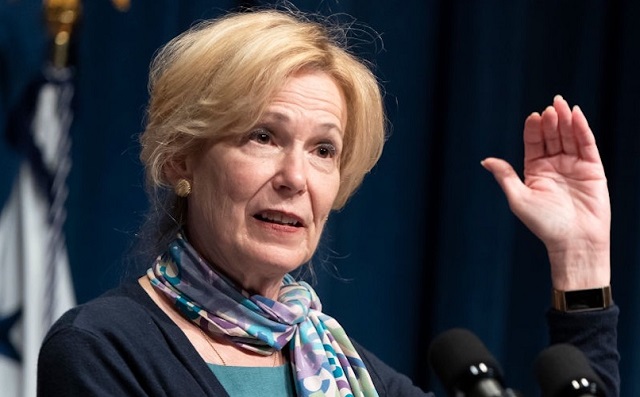
 COVID-192 days ago
COVID-192 days agoFormer COVID coordinator Deborah Birx now admits jabs could have injured ‘thousands’
-

 Bruce Dowbiggin2 days ago
Bruce Dowbiggin2 days agoWhy Do The Same Few Always Get The Best Sports Scoops?
-
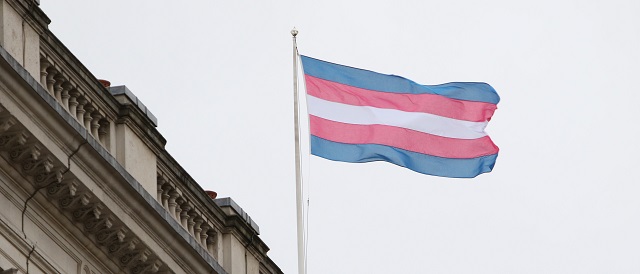
 Health20 hours ago
Health20 hours agoTHE WPATH TAPES: Behind-The-Scenes Recordings Reveal What Top Gender Doctors Really Think About Sex Change Procedures
-
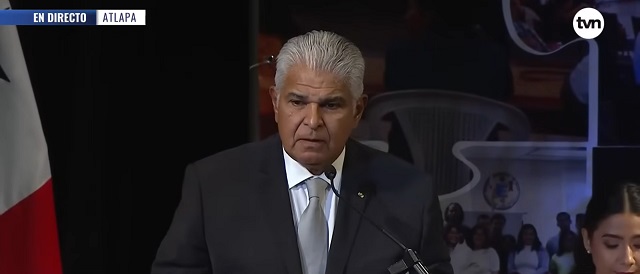
 illegal immigration1 day ago
illegal immigration1 day agoPanama’s Incoming President Wants To Shut Down His Country’s Most Treacherous Route For Migrants — But Will It Work?





